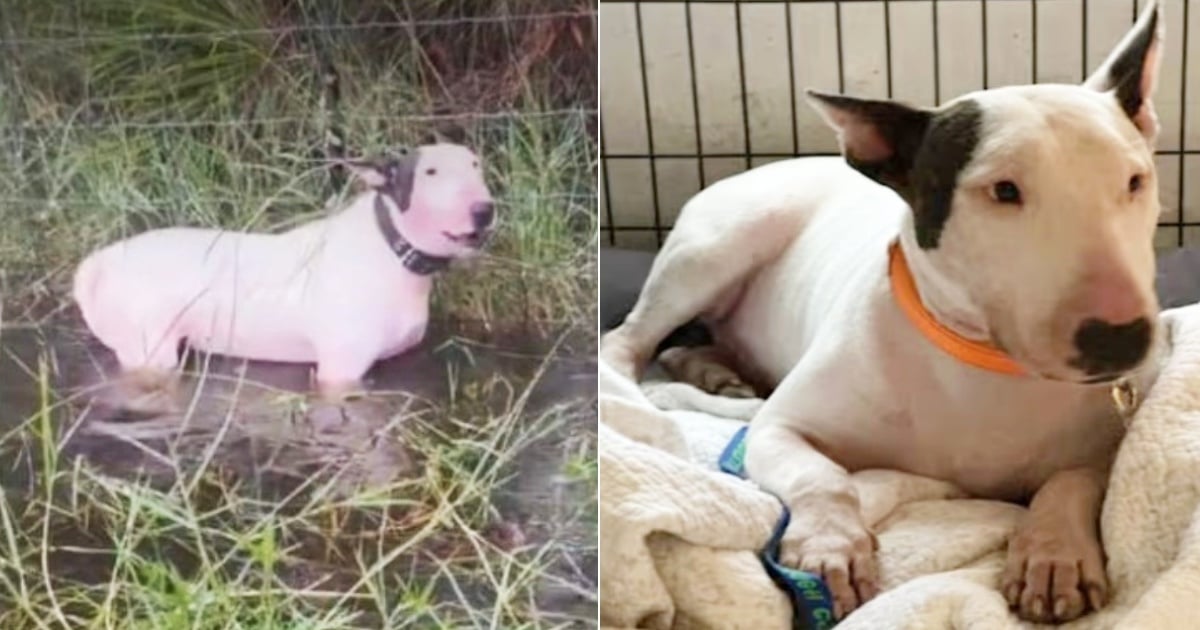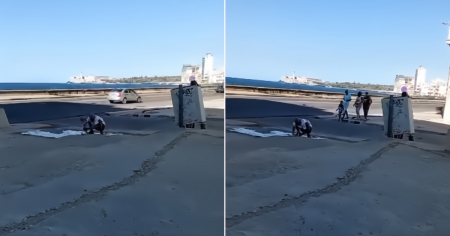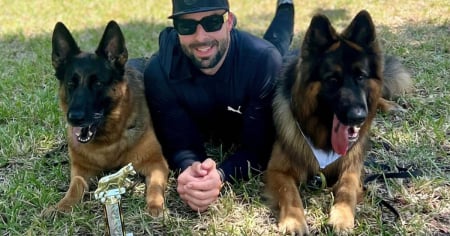
Related videos:
The Florida Senate has taken a significant step in animal protection by unanimously passing the “Trooper Law,” legislation that makes it a felony to abandon dogs during natural disasters.
This law was enacted after the dramatic rescue of a five-year-old bull terrier, renamed Trooper, who was found tied to a fence and surrounded by water before the passage of Hurricane Milton in 2024.
The measure, identified as SB 150, was supported by the 39 senators present during the Wednesday session.
"This is one of those occasions where we can create something good out of something bad, and that is this bill," expressed Senator Don Gaetz, its main proponent, during the debate.
The legislation, set to take effect on October 1, 2025, provides for penalties of up to five years in prison and fines of up to $10,000 for those who abandon their dogs or leave them confined without shelter during a hurricane, tropical storm, or tornado alert.
A story that shook Florida: the Trooper case
The origin of the law is deeply linked to the story of Trooper, a bull terrier who became a symbol of the fight against animal cruelty in Florida. During the evacuations for Hurricane Milton, the dog was found by Florida Highway Patrol (FHP) agents on the side of Interstate 75, near Pebble Creek, north of Tampa. Tied to a fence and surrounded by floodwaters, Trooper was exposed to the extreme conditions prior to the hurricane's impact.
Agent Orlando Morales was the one who led the rescue. "The video is very heartbreaking," stated Representative Griff Griffitts, who advocated for the bill in the House of Representatives, during a hearing.
The images from the rescue operation quickly went viral, mobilizing both activists and ordinary citizens who demanded a strong response from Tallahassee.
Trooper was adopted in December 2024 by Frank Spina and his family, and now lives with another rescued bull terrier named Dallas.
Despite having found a loving home, their recovery has been challenging.
According to veterinary reports, dozens of food remains were removed from his stomach last February, and since then, he has been facing recurring health issues.
Change in legislation: from isolated cases to state norm
The "Trooper Law" arises as a direct response to this case that caused public outrage. Initially, the legislative proposal referred to the abandonment of "animals" in general, but it was amended to focus exclusively on dogs, in line with version HB 205 that is moving forward in the House of Representatives.
"The bill was amended to focus specifically on dogs, thus aligning with the complementary version in the House," Gaetz explained, emphasizing the urgency of having clear and specific legislation in these kinds of situations.
The former owner of Trooper, Giovanny García, was charged with aggravated animal cruelty last year, and his case has sparked a debate about the inadequacy of current laws to punish animal abandonment in extreme conditions.
The SB 150 aims to close these legal gaps by classifying the abandonment of dogs tied up or restricted outdoors during natural disasters as a third-degree felony. The regulation covers not only hurricanes but also tropical storms and tornadoes.
Beyond Trooper: An Agenda Against Animal Cruelty
Senator Tom Leek, a Republican from Ormond Beach, has also pushed for two complementary proposals: one that further toughens penalties for animal cruelty, and another that suggests the creation of a state database of individuals accused of animal abuse.
These initiatives aim to equip the state with more effective tools to combat animal abuse and abandonment.
Governor Ron DeSantis applauded the bravery of Officer Morales and the rescue of Trooper, even mentioning it during his State of the State address, highlighting the importance of protecting animals during natural disasters.
The legislation has received strong support from organizations such as the Humane Society of the United States, the Florida Smart Justice Alliance, and the Florida Animal Control Association, which view the "Trooper Law" as a critical step in defending animal rights.
A legal and social precedent
The Trooper case and the law that bears its name represent much more than a legal change; they reflect the increasing sensitivity of Florida's society and institutions to animal welfare, especially in a state that repeatedly faces the threat of hurricanes and other natural disasters.
The law also sends a strong message to the public regarding the ethical and legal responsibilities of pet owners. “This is a call for empathy and action."
"Animals are also victims of natural disasters and deserve protection," Griffitts stated during the presentation of the initiative in the Chamber.
What comes next?
The complementary version of the “Trooper Law” (HB 205) is currently moving towards a plenary vote in the House of Representatives. If approved, the reform would be solidified definitively before its implementation in October.
Meanwhile, Trooper continues to recover in his new home. His story has transcended the local realm and has become a symbol of resilience and hope for thousands of animal advocates, who see this law as a long-awaited victory.
Frequently Asked Questions about the Trooper Law and Animal Protection in Florida
What is the Trooper Law and why was it passed in Florida?
The Trooper Law is a regulation approved by the Florida Senate that makes it a felony to abandon dogs during natural disasters. It was approved following the viral rescue of Trooper, a bull terrier abandoned during Hurricane Milton, to ensure that animals are protected in emergency situations.
What are the penalties established by the Trooper Law?
The law provides for penalties of up to five years in prison and fines of up to $10,000 for those who abandon or leave their dogs confined without the possibility of shelter during natural disasters, such as hurricanes, tropical storms, and tornadoes.
How did the Trooper case influence the creation of this law?
The case of Trooper, a dog found tied up and surrounded by water during Hurricane Milton, sparked public outrage that led to the creation of the Trooper Law. His story became a symbol of the fight against animal cruelty, resulting in the enactment of this specific legislation.
What additional measures are being taken in Florida to combat animal abuse?
In addition to the Trooper Law, proposals are being promoted to toughen penalties for animal cruelty and to create a statewide database of individuals accused of animal abuse. These initiatives aim to equip the state with more effective tools to combat the mistreatment and abandonment of animals.
Filed under:





